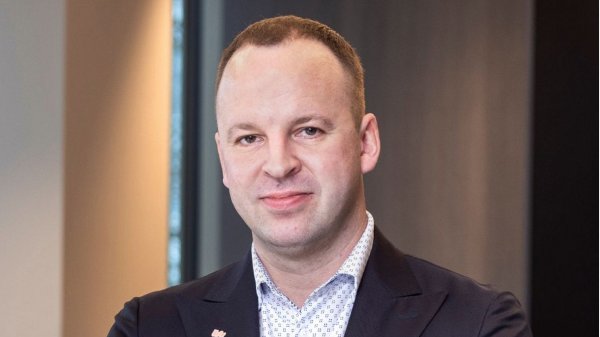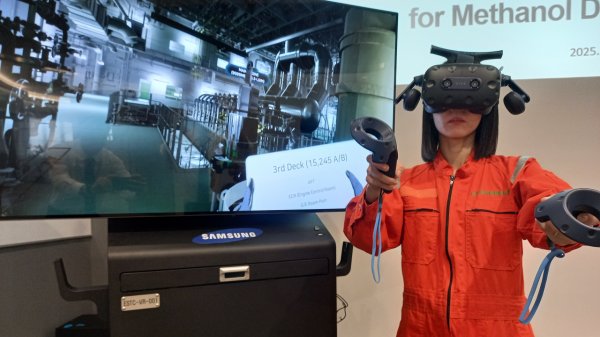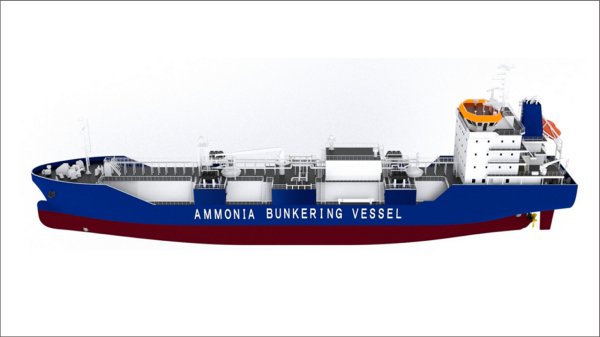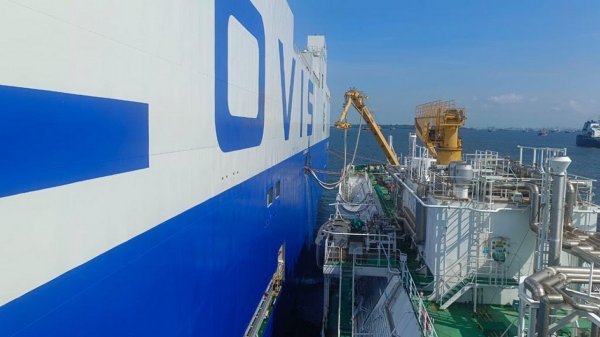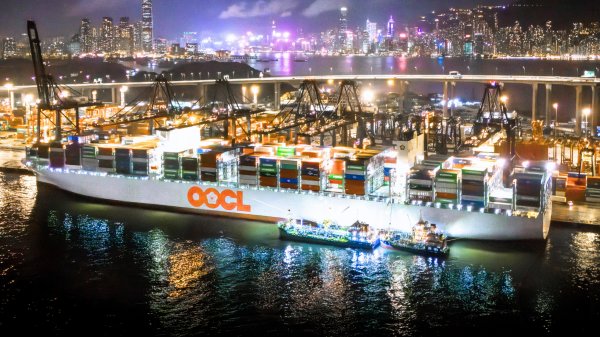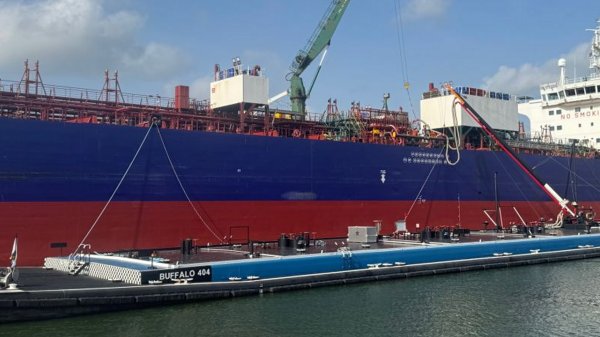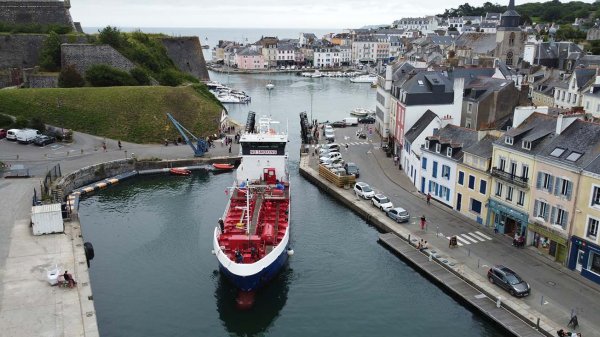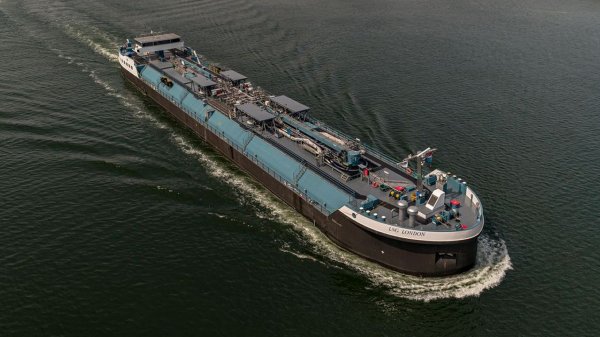Included below is a speech made earlier this week by IMO Secretary-General,
Efthimios E. Mitropoulos, where, amongst other issues, he talks about the 'complex and difficult task' of reducing greenhouse gases (GHGs) from shipping and says that the last MEPC meeting constituted a 'landmark for the organization'.
Young Diplomats in London
Breakfast meeting
Hyatt Regency Hotel, London
12th September 2011
Address by E.E. Mitropoulos, Secretary-General, IMO
"Contemporary challenges in maritime affairs”
Excellencies, ladies and gentlemen, young diplomats,
It is a great pleasure for me to be here with you today and I cherish the opportunity to speak to you on contemporary challenges facing the maritime community. I suppose it is reasonable to assume that, as “young” diplomats, most of you are in the early stages of your career. As someone who is somewhat closer to the other end of his career, I hope that I can share with you some of my experiences and insights and that you may find them of some use – and, by the same token, I look forward to the contagious effects of your youthful vigour and enthusiasm!
Let me begin by telling you a bit about myself. My background is in shipping as was that of generations of my family. I served as a seafarer in my younger days and, subsequently, in a variety of positions on shore, but always within the maritime arena. I began to rub shoulders with the diplomatic world back in the 1960s, when I started my association with the International Maritime Organization. IMO is the specialized agency of the United Nations charged with responsibility for ensuring that international shipping is safe, secure, efficient and environmentally friendly. Initially, I represented my country, Greece, at IMO meetings; later, I went on to join the Secretariat here in London and, for the past nearly eight years, it has been my honour and privilege to serve that Organization in the capacity of Secretary-General. In the discharge of my duties, I have espoused the motto “To bridge gaps – to build bridges”, which is so close to your organization’s aspiration that your “activities build bridges across cultures”.
***
Shipping is an essential part of the global transport infrastructure. Yet, in the eyes of much of the world’s population, it probably has the lowest public profile and the least representative public image of all the other transport sectors. In today’s world, most people are familiar with the rituals and frustrations of air travel; trains not only cross vast empty plains but also rattle through busy cities and suburban towns; and the lorries, cars and vans that crowd onto the road network are simply a part of everyday life. By contrast, most people never encounter a ship, except perhaps for the occasional trip on a ferry. To all intents and purposes, shipping is “out of sight and out of mind”.
Yet, if you look around you, almost everything you see has been touched by shipping in some way. Raw materials, component parts, finished goods, fuel and foodstuffs are all moved around the world by ships. Shipping carries more than 90 per cent of world trade, largely because ships enjoy unrivalled superiority over all other modes of transport when it comes to carrying massive quantities of cargo cost-effectively, cleanly and safely.
IMO – originally known as the Inter-Governmental Maritime Consultative Organization, or IMCO – held its first meeting in London in 1959. The purposes of the Organization, as summarized in the Convention by which it was constituted, are “to provide machinery for co operation among Governments in the field of governmental regulation and practices relating to technical matters of all kinds affecting shipping engaged in international trade; to encourage and facilitate the general adoption of the highest practicable standards in matters concerning maritime safety, efficiency of navigation and prevention and control of marine pollution from ships”. The Organization is also empowered to deal with administrative and legal matters related to its main, technical in nature, purposes.
The need for an international agency to regulate shipping stems from the fact that shipping is perhaps the most international of all the world’s global industries. The ownership and management chain surrounding any particular vessel can embrace many different countries; it is not unusual to find that the owner, operator, shipper, charterer, insurer and the classification society, not to mention the officers and crew, are all of different nationalities and that none of these is from the country whose flag flies at the ship’s stern.
I wonder if there can be another sector of human activity where one can meet a businessman – call him or her “shipowner” – who comes from, or has his/her headquarters in, one country (say Greece); draws capital from another country (say the United Kingdom); signs a contract for the building of a ship in a third country (say Japan); makes use of the flag of a fourth country (say Panama); charters his/her ship bareboat to an operator from a fifth country (say Germany); who uses as manager someone from a sixth country (say Singapore); who, in turn, recruits the ship’s crew from a seventh country (say the Philippines) before he/she starts operating his/her ship between an eighth country (say Brazil) and a ninth country (say China). The ship may be classed with a classification society in a tenth country (say Norway); insured in an eleventh country (say the United States); and have its accounts managed in a twelfth country (say India).
Because shipping’s prime physical assets – the ships themselves – move continually between countries and between different jurisdictions, there is an over-arching logic in favour of a framework of international standards to regulate the industry. Without internationally recognized and accepted standards, you might have the ludicrous situation that a ship leaves country A bound with cargo for country B, fully compliant with country A’s requirements for ship design, construction, equipment, manning and operation, only to find that country B has its own, different requirements. Clearly there has to be a common approach, so that ships can ply their trade smoothly around the world and that countries receiving foreign ships can be confident that, in accepting them in their ports or offshore terminals, they do not place their own safety, security and environmental integrity at an unreasonable risk.
On top of all these, shipping is also an inherently dangerous occupation, with ships having to confront the worst that the elements can throw at them. And sometimes, as we are painfully aware, disaster may strike.
***
Today, IMO has 169 Member States and three Associate Members with a host of intergovernmental and non-governmental organizations also participating actively in its work. Our formal mission statement is Safe, Secure and Efficient Shipping on Clean Oceans and, like all good mission statements, it is characterized by simplicity although behind it lies a detailed, multi-faceted and sometimes complex structure designed with the sole purpose of achieving those ends.
The direct output of IMO’s regulatory work is a comprehensive body of international conventions, supported by literally hundreds of guidelines and recommendations that, between them, govern just about every facet of the shipping industry – from the drawing board to the scrapyard.
***
And now onto specifics. Before, however, I move on to discuss a few of the most important items on IMO’s current agenda, I consider it useful to outline how IMO operates while pursuing its objectives of enhanced maritime safety, security and environmental protection.
Given the international character of shipping, the industry should, as I alluded to earlier on, be regulated by global standards. Such standards are, and should be, none other than those developed and adopted by IMO.
The same standards are meant to be implemented by all ships engaged on international trade, irrespective of the flag they fly. This helps establish a level playing field and avoid any notion of double standards, which would only cause confusion, misunderstanding, anarchy and chaos in the smooth flow of international seaborne trade.
There is, therefore, no room, in our regulatory work, for any differentiation, as to the standards we adopt, between developed and developing countries – especially when the composition of today’s world merchant fleet is such that more than 70% of it (both in the number of ships and tonnage) is registered in developing countries.
At IMO, we also strive to make decisions by consensus, as any decision made by consensus stands good chances to be widely implemented on a global basis. Efforts to reach decisions by consensus also help avoid taking a vote. Voting is divisive and does not contribute to the achievements of IMO to regulate a uniquely international industry. I wonder what would be the fate of a standard adopted by a 51 to 49% majority. It would simply fail to achieve its aim.
That is why I have always considered keeping the membership of the Organization united as one of my worthiest duties. A united membership finds it easy to make decisions by consensus.
It is against such a background that, at my opening speech at the July session of our MEPC, convened to discuss important issues pertaining to climate change, I urged the delegates – and the Committee as a whole – to display, in their deliberations:
• a firm determination to serve the best interests of the environment;
• a clear demonstration of willingness to preserve the unity of the membership;
• a preparedness to negotiate in good faith;
• a readiness to compromise; and
• a commitment to build and achieve, at the end of the day, consensus.
I will come back to the climate change issue in a short while.
***
Of all the many and varied issues that, in their totality, compose IMO’s current agenda, I should like to single out today just two of them, partly because we have been giving them priority consideration in recent years and partly because they have a strong resonance in the wider world outside the shipping community.
First, the piracy situation off the coast of Somalia and in the Gulf of Aden. Despite the fact that pirates have been a stock in trade of historians, novelists and poets alike for millennia, in real life there has never been anything romantic or nostalgic about piracy; and this has never been truer than today. Do not think of lovable rogues – as portrayed in the cinema by Johnny Depp, for example – roaming the high seas, like modern maritime Robin Hoods, stealing only cargoes of gold and treasure that were otherwise destined simply to increase the wealth of kings and noblemen. Think, instead, of armed thugs, ready to attack, maim and even kill innocent seafarers, fishermen and passengers on board ships; ready to take, keep and terrorize hostages while demanding massive ransom payments; and ready, without compunction, to steal anything, including cargoes of humanitarian aid designed to alleviate hunger and starvation, even among their own countrymen or neighbours.
Nowadays, piracy has become a problem reaching massive proportions – a problem that can be, indeed is, damaging on several different levels. For those that may fall victim to an attack, the immediate danger to life and limb, the traumatic prospect of being held captive against a ransom demand; and even the mental stress of having to sail, relatively unprotected, through known hot-spots, are things that no innocent civilian should have to face during their normal working lives.
On a broader front, the potential disruption of aid supplies to millions of hungry people; the economic damage to the shipping industry; the likelihood of disruption to international trade and the world economy (to which piracy costs between 7 and 12 billion US dollars annually); and, perhaps most worryingly of all, the possibility that the income from piracy might be used to fuel political unrest and fund insurgency and terrorism, are all reasons why this is a problem of global proportions.
Today, the deteriorating security situation in the seas off war-torn Somalia and in the increasingly volatile Gulf of Aden is at the heart of the problem. Not only have the pirates become more aggressive and violent but the nature of their attacks speaks of a sophisticated organization, both on the ground and in terms of logistical support and back up. We are now seeing many more examples of the hijacking and theft of a vessel and its cargo and, increasingly, the holding of the crew for ransom. These crimes are, of necessity, planned well in advance, with ships often targeted for their high value and easily disposed-of cargo. The gangs are clearly well trained, well equipped and well prepared – and, maybe, even well informed.
It is intolerable that shipping should continue to be plagued by pirates in this way. While there can be no doubt that the eventual solution lies in restoring effective governance in Somalia, IMO has, in the meantime, taken a leadership role in coordinating efforts to alleviate the problem from the maritime perspective, and this will remain one of the Organization’s primary focuses for as long as the situation continues. IMO’s response has included a multi-faceted action plan designed to address the problem at several different levels and we are proceeding with its implementation in an orchestrated manner – a reflection of the fact that the problem has become too entrenched and deep-rooted to be solved by any single entity. Indeed, the theme of this year’s World Maritime Day has been “Piracy: Orchestrating the response”. The United Nations, Governments acting collectively or individually, political and defence alliances, shipping companies, ship operators and ships’ crews, all have a crucial part to play in order to rid the world of the threat posed by modern day piracy.
***
The other topic I should like to talk about concerns our efforts to establish a regulatory regime to control and reduce the emission of greenhouse gases – GHGs – from shipping.
Although shipping is comparatively clean, environmentally-friendly and energy-efficient, it, nevertheless, remains dependent on burning fossil fuels and is, therefore, a contributor, however relatively small, to current levels of emissions of GHGs and air pollutants into the atmosphere – which explains why Governments, through IMO, have been engaged, for some considerable time, in a process aimed at reducing the release of harmful atmospheric emissions from ships.
The control of GHG emissions from shipping has been a complex and difficult task from both a conceptual and a technical perspective – while its political connotations have proved just as difficult, if not more so, for the IMO Member States. What, first of all, would the measures be? How should they be applied, to whom and as from when? Should they be mandatory or voluntary? If mandatory, should they be introduced in IMO’s regulatory regime by means of an existing convention or through a new, stand-alone instrument? These were all questions with which the IMO Members grappled before, last July, our specialist environmental body, the MEPC, adopted a comprehensive set of technical and operational measures aiming at enhancing the energy efficiency of ships and thus reduce (by between 20 and 30% by 2030) the volume of greenhouse gases they emit into the environment.
The outcome of that session of the MEPC constituted a landmark for the organization, which has now made a positive contribution to worldwide efforts to stem climate change and, indeed, a landmark for the international community since, for the first time in history, it has been possible to legislate GHG emission reductions for an entire industry sector.
***
What I think the modest number of examples I gave you clearly demonstrates is that that there is a maritime dimension to virtually every major issue facing the world today, not just security and climate change, but also energy, environmental protection and conservation, research and innovation, competitiveness and job creation, transport and logistics, international trade and world economy.
The world’s oceans and seas are interlinked, and action in one sea, or one policy area with an impact on the sea, may have positive or negative, intended or unintended, effects on other seas and policy areas. Moreover, the ever-more-intense use of the oceans and seas by sectors such as shipping, energy, tourism or fisheries, combined with climate change, have added to the pressure on the marine environment.
The countries of the world are now clearly recognizing the major contribution shipping can make to their economies and to the well-being of their people. There is a manifest acknowledgement that sea-based activities are both an essential element of, and a challenge to, sustainable development, and their intensification poses a significant test.
A comprehensive, coordinated approach, ensuring safety and security in maritime transportation and sustainable development of the different sea resources and activities is the Holy Grail of maritime policy.
In many ways, the seas are the world’s lifeblood. Maritime spaces and coasts are central to its well-being and prosperity – they are trade routes, climate regulators, sources of food, energy and resources, and a favoured site for residence and recreation.
In today’s global economy, hundreds of millions of people all over the world rely on ships to transport the great multitude of commodities, fuel, foodstuffs, goods and products on which we all depend. Over many decades, shipping has actually become safer and cleaner, not to mention more cost-effective. Indeed, you could argue that it is something of a testimony to the ever-improving safety and environmental record of the industry that it is able to go about its business so quietly, largely untrumpeted and unsung and generally unheralded.
Shipping has a history and a tradition that few others can match. And yet it remains as relevant to the modern world as it ever has been – perhaps even more so because, without it, today’s global economy simply could not exist and be sustained. The legacy that we should, therefore, hand down to those to whom we will pass the baton when the time comes should be one of a united industry in which Governments, shipowners and seafarers work harmoniously together to serve the international shipborne trade and world economy to the best of their ability. In this, you, young diplomats, have a role to play, either as representatives of your countries at IMO meetings or in the execution of your duties at home and in embassies around the world. I wish you every success in your career.
Ladies and gentlemen,
Thank you.

